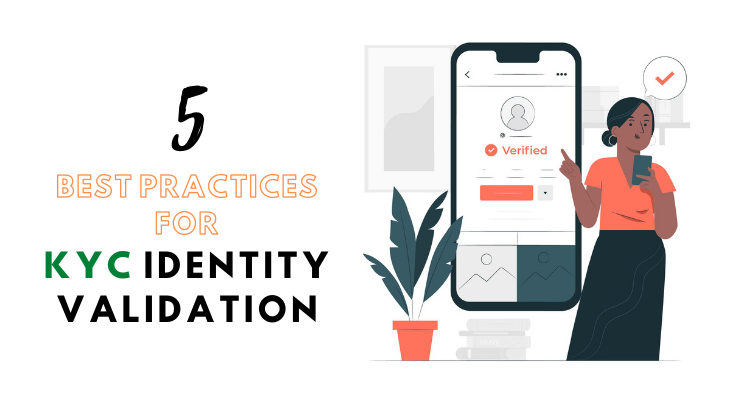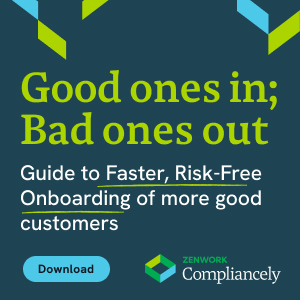
5 Best Practices For Know Your Customer Identity Validation Processes
As businesses add new vendors, clients, and customers to their master sheets, it is important to understand if your client profiles are valid and if the source of their finances is legit.
Businesses, particularly in the banking, finance, and lending sectors, understand the importance of the KYC process because without it, you could be onboarding an individual with a history of money laundering and identity fraud.
Customer due diligence (CDD) and its various levels of validations are gaining rep around the world because of this simple notion- ignorance is risky.
Of course, due diligence processes bring in their wonderful set of compliance check benefits, but this also brings up the question of extreme profile scrutiny.
In all fairness, not all clients need to be scrutinized to the same degree. But how willing are you to take such a risk?
If you have a KYC process in place for your business, here are some best practices you need to add to your validation regimes to further mitigate risk, improve your approval rates, and organize your overall customer verification process.
Identify Your Customers
Integrating a customer identification program is essential to verify the identity of an individual. Collect, record, and validate the basic personal information of the customer, such as the social security number and address.
The objective is to ensure that you are not approving individuals with a history of engaging in terrorism regimes, money laundering, and prohibited export activities.
Customer Due Diligence
A KYC process is incomplete without this practice. Integrating CCD into your business ecosystem means that you take consistent profile validation seriously. Now, the catch here is in deciding whether basic due diligence or enhanced due diligence process is needed for your business.
Thorough documentation, background screening, along with customer identification process will help you achieve a fair perspective of the profile. Use these insights to decide on a process that is vigorous enough to trace noncompliance but simple enough to implement consistently, giving you maximum scalability.
Death Master File, AML, and PEP Checks
Anti Money Laundering, Death Master File, and Politically Exposed People databases include information about individuals that have violated the economic and identity compliance regulations.
People, who have a history of “scamming” the public, hiding their incomes, evading taxes, hiding their real identities, adopting identities of the deceased, and more, are listed in these records. By validating the social security information of the individual against these authorized records, you are reducing associations that bring with them the risks of non-compliance and violation assessments.
Further, validating profiles against multiple regulatory compliance databases will help you establish that the profiles are legitimate, and help reduce risk.
Regulatory Compliance Assessments
Compliance audits and assessments help you examine the risks and liabilities your business might have to endure if you do not follow regulatory compliance regimes. Compliance risks include penalties, security risks, reputational loss, legal assessments, and operational interruptions.
Risk assessments also help you check if your business is in good standing with the federal authorities and accelerates regulatory compliance.
Monitoring Suspicious Activity
This specifically applies to businesses in the finance, lending, and banking sectors. When you observe that certain accounts show suspicious or unusual activities in terms of cross-border transactions, going over the draft limits frequently, extreme activity or no activity, or illegitimate sources of funding, then such activity must be monitored constantly and even blocked temporarily to prevent risks.
Once you have alerted your organization about the unusual activity, continue to monitor the accounts and assess if you want to continue to associate with a risky profile.
Optimize Your KYC Processes With 17+ Real-Time Regulatory Compliance Checks.
Compliancely enables businesses from a variety of industries to establish regulatory compliance and optimize KYC processes with 17+ real-time identity checks.
Check the real identities of businesses and individuals by the authorized databases and watch lists of the federal organizations as follows.
- TIN & Name Match
- OFAC Watch List
- European Sanctions List
- Death Master File
- Specially Designated Nationals
- Politically Exposed People
- IRS Tax-Exempt Org. Search
- Foreign Account Tax Compliance Act (FATCA) List
- Address Validation
- Denied person List
- SOS Business Entity Search
- Consolidated Sanctions
- Arms Export Control Act
- Foreign Sanctions Evaders List
- Excluded Parties List System
- List Of Excluded Individuals/Entities
- Designated Foreign Terrorist Organizations
